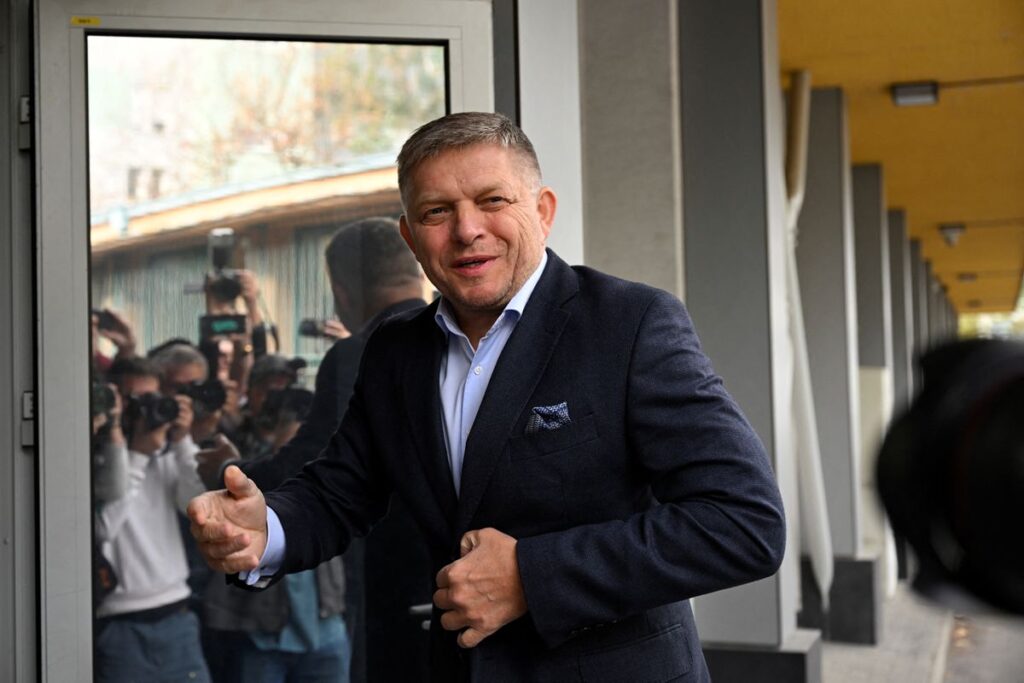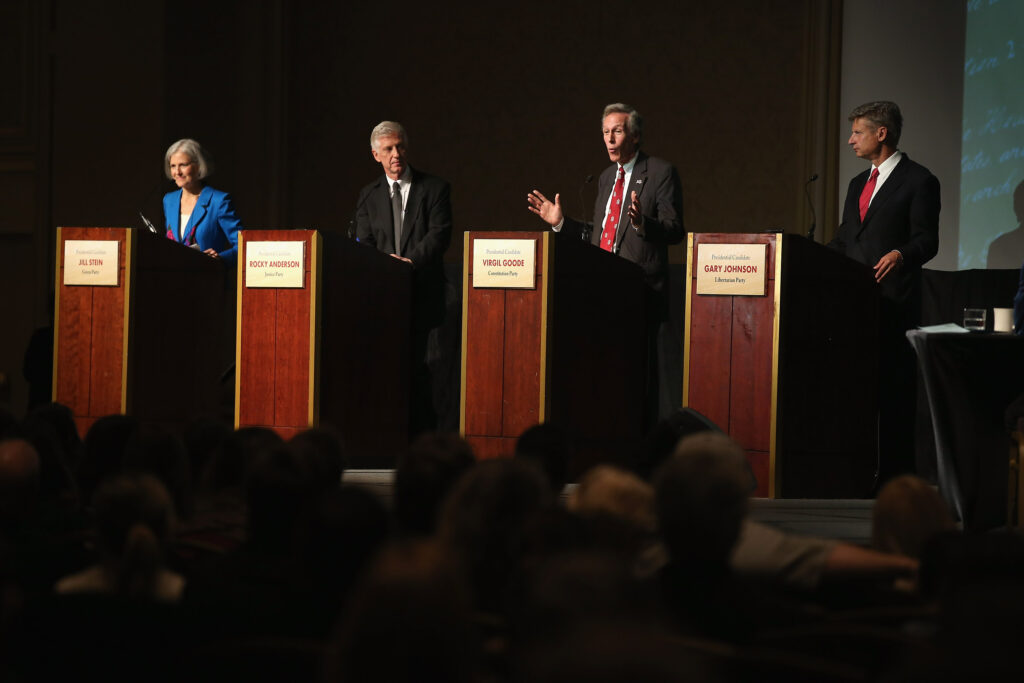Table of Contents
A Triumphant Return for Fico and SMER-SSD
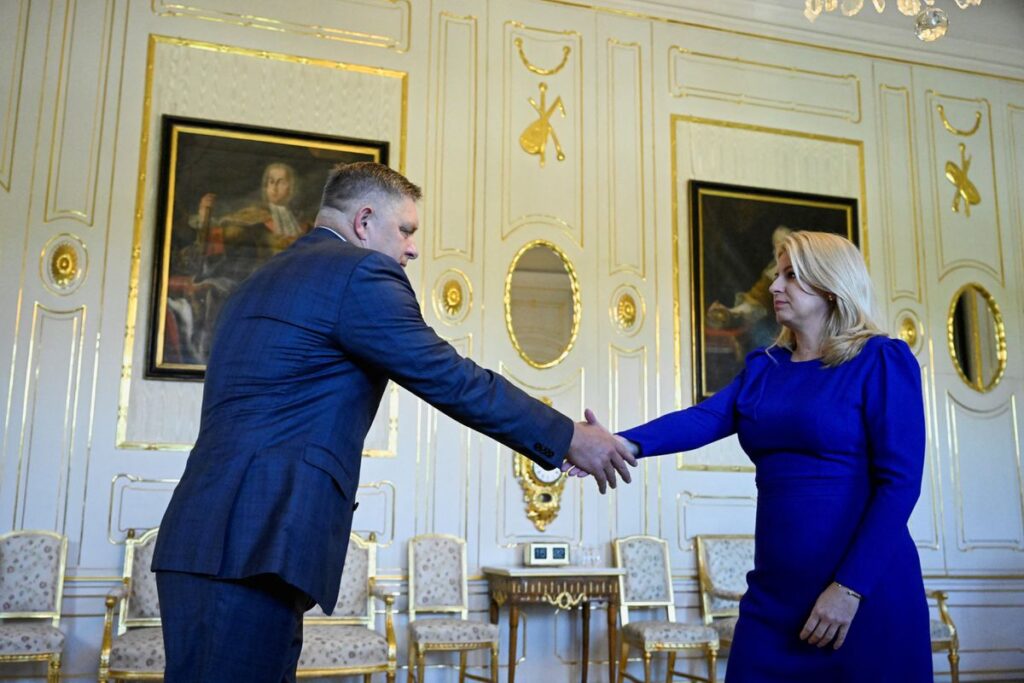
In a pivotal moment for Slovakia, Robert Fico, a seasoned politician and three-time prime minister, has once again surfaced victorious, wielding promises to halt military aid to Ukraine and potentially recalibrate the nation’s stance within the European theater. Fico, leading the leftist SMER-SSD party, has been thrust into a two-week window to weave a coalition government, a task underscored by the intricate and somewhat polarizing political tapestry of the nation.
Slovakia, a steadfast member of both the European Union and NATO, finds itself at a crossroads, where Fico’s rhetoric leans towards fostering closer ties with Hungary in opposing the bloc’s unwavering support of Ukraine against Russia. This stance, however, is balanced precariously against the necessity to collaborate with other parties to solidify a coalition government. Thus, ensuring that Fico’s political maneuvering does not guarantee an absolute shift in policy, providing a semblance of reassurance to international onlookers.
Tightrope of Political Alliances
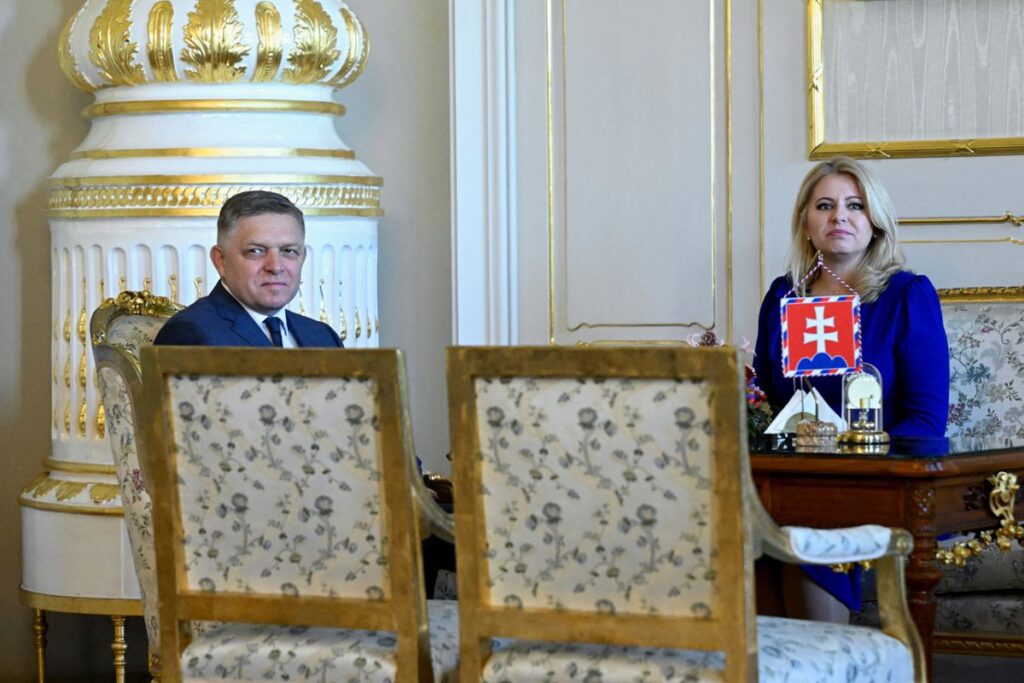
On Monday, a brief rendezvous with President Zuzana Caputova granted Fico an initial nod to embark on government formation efforts. “We agreed on a two-week deadline which I will have at my disposal to form a government,” Fico shared with the media, acknowledging the forthcoming complexities of the process.
With 23% of the vote nestling in Fico’s political coffers, ahead of the liberal contender, Progresivne Slovensko (Progressive Slovakia, PS) which garnered 18%, the coalition formation promises to be a strategic game. A probable alliance looms with HLAS (Voice), a pro-European faction, and the Slovak National Party (SNS), noted for its pro-Russian tendencies. The former, helmed by Fico’s erstwhile ally, Peter Pellegrini, could temper SMER’s potential government, offering a stabilizing and moderately pro-European influence, given its substantial parliamentary presence.
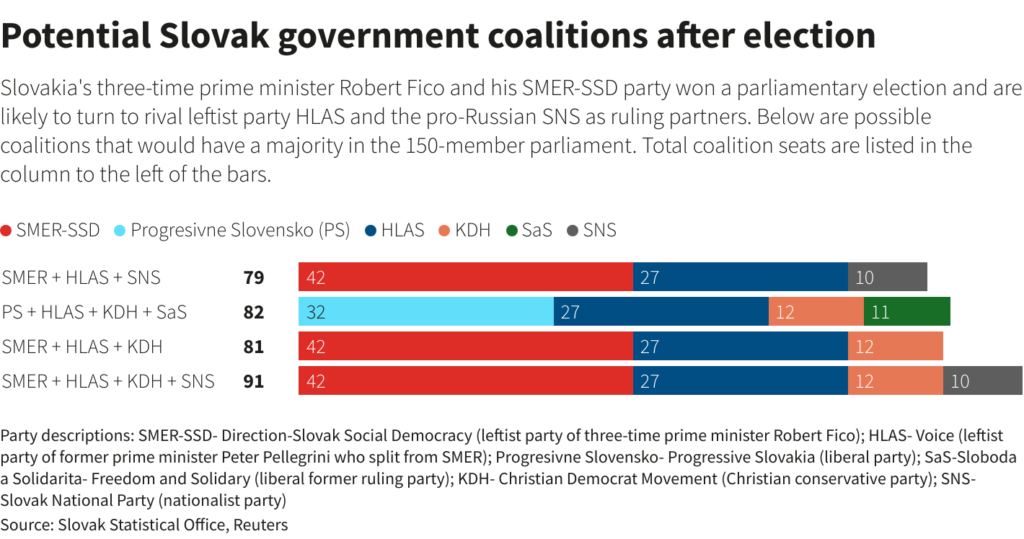
Yet, the coalition dynamics remain fluid. HLAS might propel SMER to negotiate with the Christian Democrats over nationalists, or alternatively, pivot its allegiance to a PS-led coalition, contingent on the ebb and flow of discussions with SMER. Pellegrini, vocalizing reassurance, emphasized that HLAS’s participation in governance would not precipitate a dramatic overhaul in Slovakia’s foreign policy.
Despite Fico’s seemingly anti-Western stance in opposition, historical context highlights his pragmatic approach, as manifested when Slovakia was ushered into the euro zone under his premier leadership, eschewing significant political conflagrations. Consequently, analysts opine that a dramatic policy reversal or a cessation of support for Ukraine in Central Europe is improbable.
Strategic Alignments and Potential Divergences
Fico’s assertion to curtail military supplies to Ukraine underscores a nuanced approach. While rejecting further military escalation, he advocates for humanitarian and reconstruction aid, alongside the pursuit of peace dialogues. This aligns notably with Hungarian Prime Minister Viktor Orban’s position, albeit resisted by Ukraine and its Western allies, asserting that it might inadvertently embolden Russia.
Amidst global scrutiny, Slovakia’s political narrative weaves forward, intertwining national aspirations with the intricacies of coalition-building, where the eventual government will inherit not only the mandate of the electorate but also the task of navigating through a delicately poised international tableau. How Slovakia will reconcile its internal political dynamics with its stance in the global arena remains to be seen, as the coalition negotiations unfurl over the ensuing fortnight.
